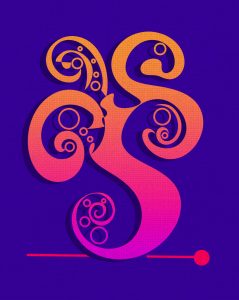21.11.2023
Oedipus kills his father. And marries his mother. Then, because of the situation, when she finds out what has happened, Oedipus’s mother kills herself. But the story does not end there. Oedipus produces the daughter Antigone, a daughter that has to fight against the state for the law, for mourning, for family. Oedipus and Antigone form a continuum: the father’s resistance to society has to become the daughter’s resistance. The guilt of the father has to translate into the feminised resistance against the state and its so-called laws. The ultimate expression of resistance is feminised revolt. This is the curse upon Oedipus. It is ancient. It is unalterable. In Hindu thought, we move in cycles of time that direct our destiny. Anarchy is the fate of Oedipus. Oedipus is a rule breaker, the destroyer of laws. Antigone is a rule breaker, the destroyer of laws. Antigone is the real face of Oedipus. There is no alternative. And, in the myth, Antigone is fated to lose. She is buried alive. Concealed. Repressed. It is the state that wins, with its so-called laws. You can only understand anarchy if you understand the myth of Oedipus, the state and its methods of attack and defence, you can only understand the challenge to the law if you read the myth. You can only understand everything if you understand what Antigone is, if you have felt it in your body and your mind. She is outrage, love, the mourner, the family, the powerless that comes to power, the silenced that becomes the voice, the inconsequential that becomes the threat. Anarchy is based in gender.
Meeting in the pub with a close friend. He often tells me that I am a highly unusual person and wondered if I was autistic? What difference would it make if I was? I told him these are just labels. My mind pays attention, lingers on things and people, thinks – as he says – obsessively about things over and over again. It is a mind that finds it difficult to forget. Yet, you can pull yourself away from a subject of interest. Time and separation. That’s all it takes. And then, you only think of that subject sometimes.
For instance, I was obsessed with becoming a university professor. I worked hard at my PhD. I presented original papers at conferences. I got my thesis published as a book. I got articles in top journals. I used to work for free on scholarly book reviews for journals, the university and websites all the time in my free time. I tried to network with as many academics as I could, follow the most contemporary debates. I used to read all the time. Then, when I spent so many years trying to get in and they wouldn’t let me, despite working all the time, one day I just turned my back on everything. And now, the only thing I remember is the betrayal of the intellectuals and knowing that I worked on important things that were not recognised at the cost of life and living.
The last challenge: getting up out of bed early in the mornings. It has been a few months now. Every night, I resolve to get up early and do all the things I need to be doing. Every morning it is the same story. The motivation for the day is what you don’t have. Everything is directed towards those things that are not there. In the end, the time comes. You are going to be late in. So, you snap yourself out of it. You skip breakfast every day. You skip all the morning routines like meditation, you put together a very quick exercise routine which is severely abridged. Somehow, you manage to get in a half hour early. What do you do in bed? Think. Nothing else. Thinking and thinking. About things that are out of your control, that are in the past, that nothing can change no matter what. As you lie there, completely powerless over your fate – which is always in someone else’s hands and will always be – you become a passive, motionless object, a corpse in a grave. Silent. Voiceless. Alone.
